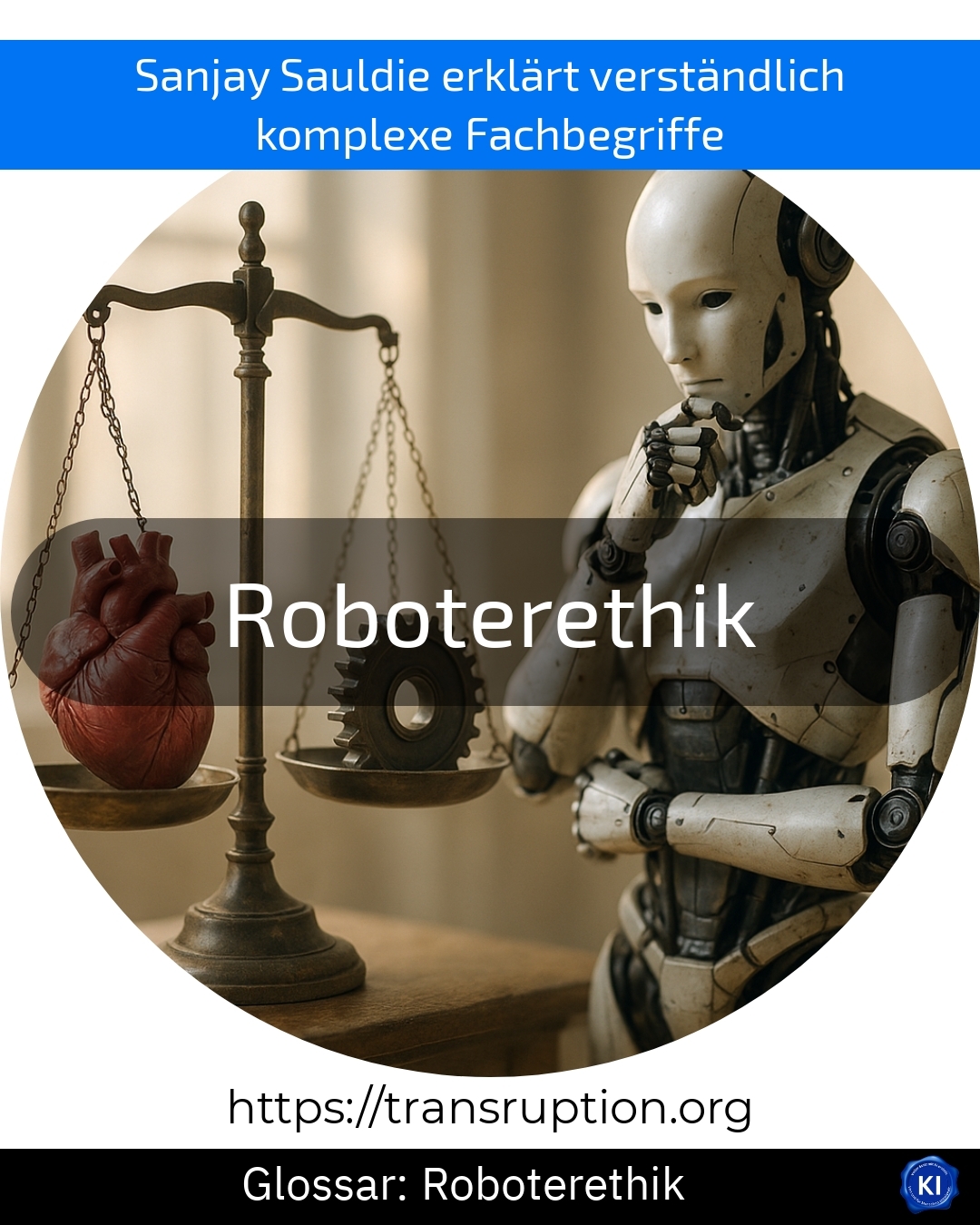Robot ethics is particularly relevant in the areas of artificial intelligence, robots and digital society. The term describes the ethical principles and rules according to which robots and artificial intelligence should act. The aim of robot ethics is to ensure that machines do not make decisions that harm people or treat them unfairly.
One example: In a hospital, care robots could support elderly people. Robot ethics ensure that these robots treat patients with respect, respect their privacy and react correctly in an emergency - for the benefit of people.
Robot ethics is becoming increasingly important as more and more tasks are automated. Robot ethics therefore also deals with questions such as: Is a robot allowed to monitor someone? Who is responsible if a robot makes a mistake? Companies and researchers are developing guidelines to ensure that robots are used responsibly.
Robot ethics is a key issue for decision-makers when it comes to the introduction of robots or AI systems in the company. It helps to create trust, minimise risks and ensure the responsible use of new technologies.















